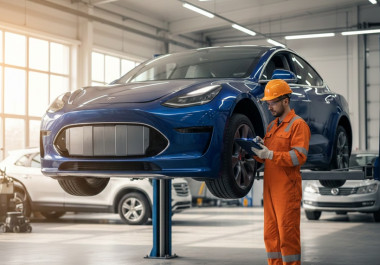Car auctions move quickly, and understanding the finer details can make all the difference between a successful purchase and an expensive mistake. Here you'll learn about cooling-off periods in car auctions, clarify your rights regarding auction cancellations, and gain practical advice to help you make informed decisions. Whether you're a seasoned bidder or newcomer to RAW2K, this UK-centric approach will help you navigate the auction process with confidence.
A Closer Look at Cooling-Off Periods in Car Auctions
Cooling-off periods are a familiar feature in many retail transactions, yet they're notably absent in car auctions. Once you win a bid, traditional cancellation rights are typically not available. This setup maintains a swift, final, and efficient auction process that benefits all participants.
How Cooling-Off Periods Differ from Traditional Retail
Unlike high street purchases, where a statutory cooling-off period might apply, car auctions operate on a "final sale" basis. There is generally no timeframe during which a bid can be reversed. Bidders must thoroughly research and inspect vehicles in advance because the chance for cancellation simply isn't offered. While many consumers appreciate the safety net offered in conventional retail settings, car auctions require an upfront commitment that leaves little room for second thoughts.
Why Understanding Auction Cancellation Rights Is Essential
Due to the limited cancellation rights in the vehicle auction process, every bid represents a firm commitment. Any miscalculation or oversight cannot be undone once the auction concludes. Understanding all the auction terms and conditions before committing to a bid protects your investment and enhances your overall auction experience.
The Legal Framework: Car Auction Laws and Cancellation Rights
Car auction laws in the UK are designed to ensure transparency and protect the integrity of the auction process. However, they do not generally extend cancellation rights beyond what is specified by the auction house.
Legal Limitations on Auction Cancellation Rights
Under the Consumer Contracts Regulations and the Consumer Rights Act, many consumer protections available in other transactions are not applicable to auctions. When you win a bid, you are bound by that purchase. Auction houses clearly state these conditions so that every participant understands that no cooling-off period is provided. This legal framework maintains a fair environment by ensuring that all bids are final, thus discouraging hasty or uninformed decisions.
The Importance of Reading the Fine Print
Carefully review the terms and conditions related to cooling-off periods before bidding. Knowing exactly what is allowed can save you from unexpected challenges if a vehicle does not meet your expectations after purchase. Paying close attention to the details listed by auction platforms such as vehicle auctions can make all the difference in preventing costly mistakes.
Real-World Implications for Bidders
The absence of a cooling-off period means that each bid must be made with careful consideration. Personal experiences and practical insights highlight the importance of preparation in the auction process.
Learning from Experience
A first car auction can be overwhelming. In the excitement, it is easy to assume that a misstep might be corrected later. However, once the gavel falls, every bid is final. This lesson underscores the importance of thorough pre-auction research and disciplined vehicle auction bidding, ensuring that you fully understand what it means to forgo cancellation rights.
Strategies for Effective Bidding
Do Your Homework: Study auction catalogues well in advance. Examine the condition, service records, and history of any vehicle of interest using available viewing sessions and online previews.
Budget Wisely: Establish a strict budget before bidding. The excitement can lead to overbidding, and without any cooling-off period, every additional pound matters.
Engage Directly: When details remain unclear, ask questions before the auction. Resources and guidance available through RAW2K help clarify any uncertainties.
Expanding Your Understanding: Critical Questions and Investment Protection
Additional questions to ask yourself can further protect your investment when engaging in car auctions. Reflect on details such as the vehicle's accident history, previous maintenance records, and any outstanding finance attached to the car. Verify details where possible with third-party reports or specialist inspections if available. It is often worth reaching out for expert advice before finalising a bid.
How to Safeguard Your Investment
Developing a comprehensive checklist for each lot can enhance your due diligence. Begin by comparing the vehicle's specifications against similar models offered by other platforms, such as motorcycle auctions if you're considering a different type of vehicle altogether. Consider this checklist as an investment protection plan:
Detailed Vehicle History: Ascertain full details on service and previous ownership.
Condition Reports: Look for any signs of damage or potential issues that might not be obvious from photographs alone.
Price Comparisons: Conduct an analysis against the wider market to ensure you're bidding on value.
These steps allow you to balance the risks associated with the absence of cooling-off periods and understand the finality of auction regulations.
How Auction Cancellation Rights Impact Business and Individual Buyers
Both business buyers and individual bidders need to adapt their strategies, recognising that cooling-off periods are rare and cancellation rights are limited in the auction environment.
For Business Buyers and Fleet Managers
Businesses often rely on auctions to secure high-quality vehicles at competitive prices. The absence of a cooling-off period means that fleet managers must perform diligent due diligence, ensuring that every vehicle meets operational needs without any margin for error. Options in different regions, such as the South East, North East, North West, Wales, West Midlands, Northern Ireland, and Scotland, further broaden the choices available, making thorough regional research a vital part of the auction process.
For Individual Bidders and Start-Ups
For those with more constrained budgets, limited cancellation rights mean that every bid must be carefully assessed. Gaining auction experience as an observer, learning from seasoned bidders, and meticulously reviewing terms can help reduce the risk of making an irreversible mistake. Before participating, consider registering for an account to access detailed vehicle information and auction schedules.
The Broader Regulatory Context of Car Auctions
While cooling-off periods are common in other transactions, the regulatory framework for car auctions is built on a different set of priorities. Rigorous car auction laws ensure that every bid maintains its final status, thereby preserving auction integrity and fostering a fair marketplace for all participants.
Transparency and Accountability
Auction houses provide comprehensive vehicle information that fosters trust, even in the absence of a cooling-off period. Detailed documents and service histories help ensure fairness and transparency throughout the process, reinforcing that every bid is made with full knowledge of its binding nature.
Maintaining a Fair Process
Strict auction regulations preserving the finality of bids ensure a level playing field. These rules are designed to mitigate the risk of post-auction disputes by making sure that all participants understand their commitments, regardless of the absence of traditional cooling-off mechanisms.
Final Thoughts: Prepare, Research, and Bid with Confidence
Understanding cooling-off periods in car auctions and the limitations on cancellation rights is essential for anyone participating in this dynamic environment. Thorough preparation, detailed research, and careful budgeting are the best tools for success. Approach each auction with the confidence that comes from being well-prepared, and use these strategies to ensure every bid is informed and secure, even when cancellation rights are limited.
For any questions or uncertainties about the auction process, contact us for expert guidance. Happy bidding!




